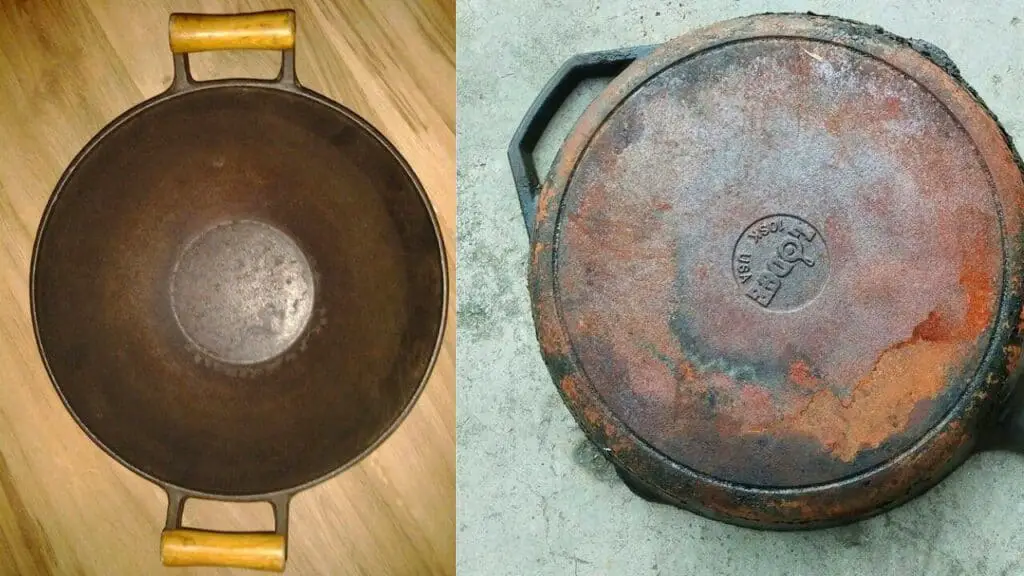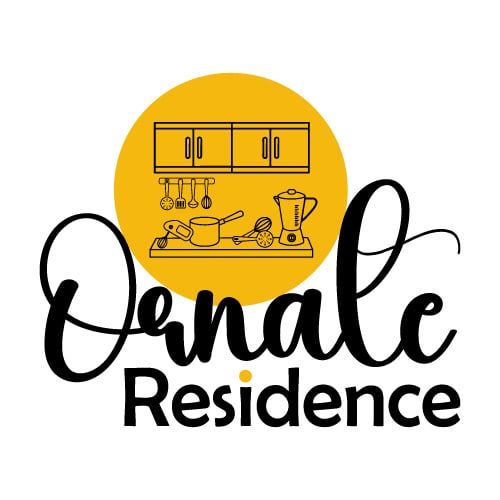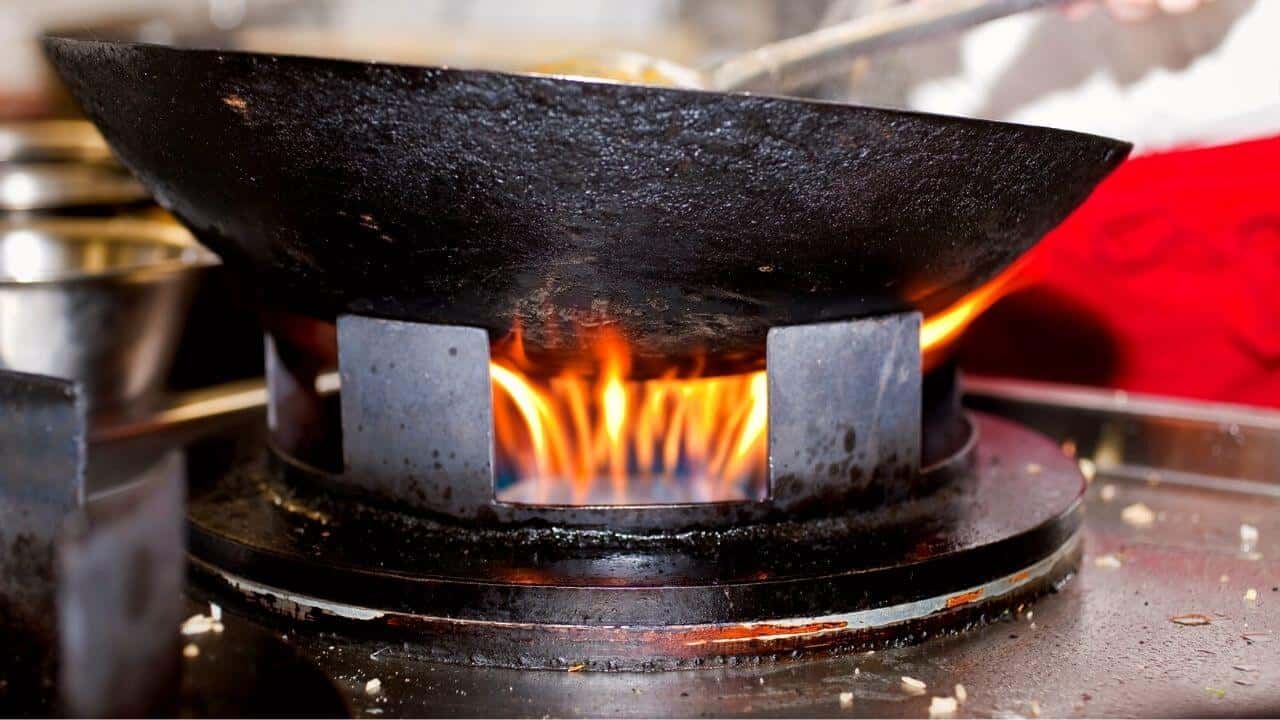Last Updated on May 19, 2023 by River Tree Farms
We’ve all seen it. That ugly orange rust accumulates on the surface of our wok. Where does it come from? Is there something wrong with my wok?
Yes, your wok will likely rust at some point, depending on various factors.
Before you give up on the beloved cookware and buy another, stay with us for a few minutes in this article, and we will help you figure out why it’s developing rust and what we can do to fix this problem.
Why is My Wok Rusting?

Even though woks are designed to withstand cooking heat, rust can still happen on a wok. This rusting could be attributed to several reasons, the main reason being moisture exposure. We have different types of wok depending on the materials used to manufacture them, including; cast iron, carbon steel, and iron. All these are metallic surfaces, and we all know that rust is formed when metals come into contact with moisture.
It is believed and attested that a seasoned wok (a wok that is pretreated using vegetable oil or other desirable oils to create a protective coating.) is less prone to rust. This is true until you choose to put your woks in the dishwasher for cleaning. The dishwasher, compared to handwashing, will quickly remove the seasoning in the wok, causing it to rust.
Generally, if you wash your wok without drying it up so well, it will be predisposed to rust. As well, the process of washing itself will also raise the chance of rusting because both cast iron and carbon steel are porous. This means that water can still be retained, especially if the wok doesn’t have a protective coating.
How to Remove Rust from the Wok?
Removing rust from the wok isn’t hard, but there are a few important things you need to be sure of to get the best results. If the rust is forming or newly forming, it is easier to clean it. If the rust has spread extensively, it will take much time and labor to get it off.
You, therefore, need to do careful cleaning and learn what to do to prevent the recurrence of rust. The process of removing the rust is similar to that of removing burnt food particles. The only materials required are a steel wool pad/ soft sponge, dish soap/ soapy water, and some hot/water.
There are two common processes of removing the rust depending on the extent of the rust.
The first process involves:
- Pour 2-4 tablespoons of salt into the middle of the pan.
- Add an equal amount of vegetable oil to the pan.
- Using a folded paper towel, scrub the pan vigorously, concentrating on the rusted spots. Make sure that you cover the whole surface with the mixture.
- Continue adding salt or oil as needed until you achieve a smooth surface.
Please note this method is for less serious rust spots.
The second process involves:
- Soak your wok in warm water for approximately 5 minutes until the rust particles are loose. NB. Not all the rust will be loose.
- Evenly scrub using a steel wool pad/soft sponge and dishwashing soap until the rusted area feels smooth to the touch.
- Rinse your wok thoroughly after the scour.
- Use fine sandpaper over the wok to ensure you have completely smoothened the surface.
- Rewash the wok using hot soapy water to remove any rust residues.
- Finally, rinse your wok using hot water.
- Completely dry the wok by placing it on a burner and heating it until you can’t touch it.
Now, to maintain or shiny, smooth wok, we need to season the wok ( please refer to the steps involved in seasoning a wok). This will seal all the porous pores and provide a protective coating that protects the wok from moisture, therefore not rusting.
Do Carbon Steel Woks Rust?
The answer is yes, they will rust, but the reaction will never occur below 500 degrees Fahrenheit. Carbon steel Woks rust when they come in contact with water or air. Water reacts with iron, one of the main ingredients used to make carbon steel. The acidity of the water can cause staining on your wok and also corrosion over time. So if you intend to use a carbon steel wok, you must avoid leaving it outside or exposing it to wet spills.
Do Cast Iron Woks Rust?
The cast iron wok rusts, as does any other kitchen cookware. In fact, everything will rust unless it is protected against it. That may sound paranoid, but the fact is unless you treat your cast iron wok properly(seasoning), it can end up rusting, just like if exposed to water and air in an unprotected manner. It can happen just by using it on the stove or through improper storage — regardless of the quality.
Is It Safe To Use A Rusted Wok?
Will it hurt my family’s health, and will we become ill if we consume food cooked in a rusty wok? What about using a non-stick pan that has rusted in the bottom of the pan? Is there any harm, or is the rust ineffective because it isn’t bonded to the metal of the pan? People ask these questions whenever rust develops on their woks. There are some concerns about overeating food cooked in a rusted pan, but this concern is usually unjustified. Most rusted metals—including iron, steel, and aluminum—are not toxic!
Conclusion
Nobody would want their wok all black and rusty. We all want it well maintained-clean and shiny. Make sure to follow what we have discussed in this article to keep your wok in good condition.
Your wok gets rusty all the time. It’s a question you had when you bought your first wok, and now that you are still buying different types of woks, and now I know it all makes sense!
Here are other articles you might enjoy:

